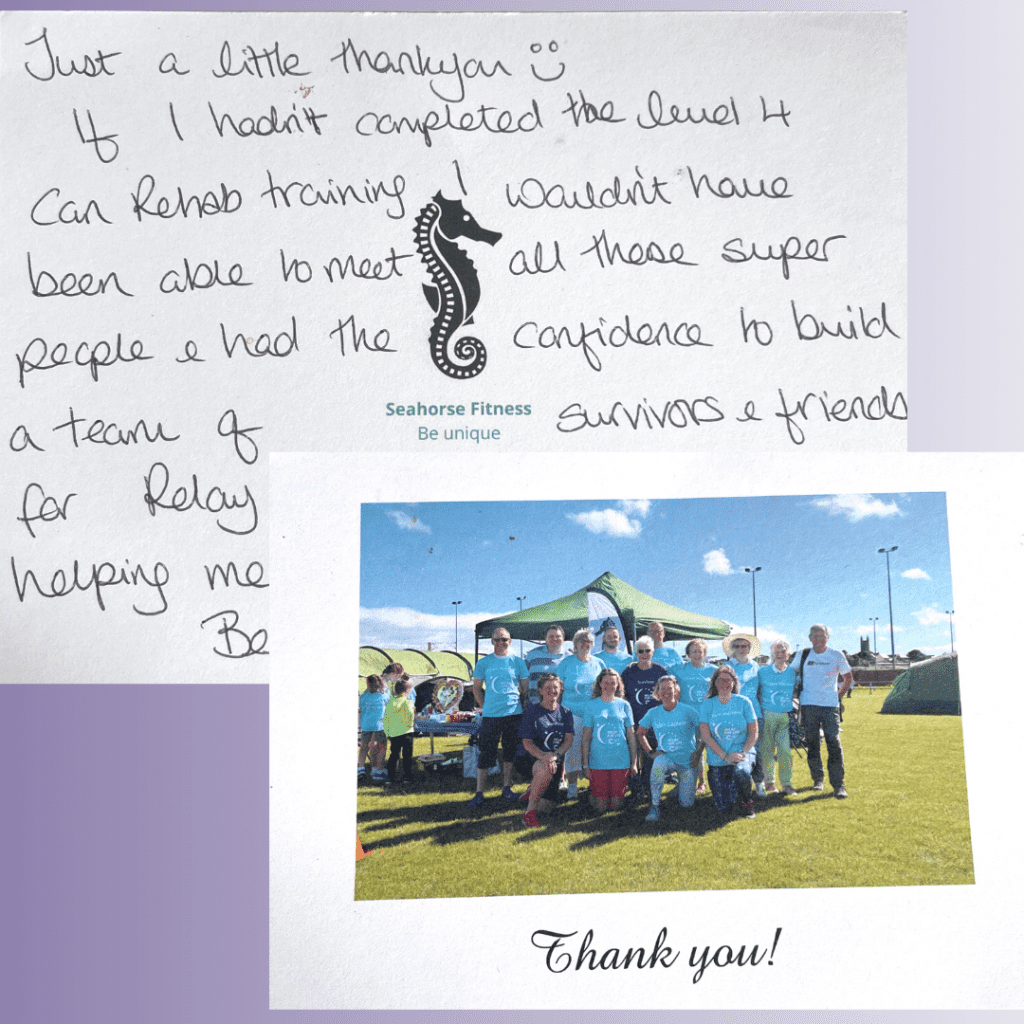Every 14 minutes, someone is diagnosed with blood cancer. Anthony Nolan is the charity that makes lifesaving connections between patients in need and individuals who are willing to donate their stem cells. As well as connecting patients and donors, the charity also funds research that could transform the future for more patients. Earlier this year, our admin assistant Phoebe was contacted by Anthony Nolan to donate lymphocytes towards this research.
We thought it would be a great opportunity to share Phoebe’s experience, while also sharing information about blood cancer and blood disorders. [There are a couple of photos of Phoebe’s donation experience, including one showing the cannula.]
The Donation Process
I signed up to the Anthony Nolan register when I was in 1st year of university, in 2016. I remember that there was a tent at the Freshers’ Week fair and all you had to do was donate a saliva sample and fill out a form. I had initially been a bit nervous, because I associated stem cell donation with a surgical procedure, but was very surprised to find out that 90% of donors donate through PBSC (peripheral blood stem cell collection). This is a simple, outpatient procedure similar to giving blood. The whole thing took less than 5 minutes, and then I didn’t hear from AN until April 2023.
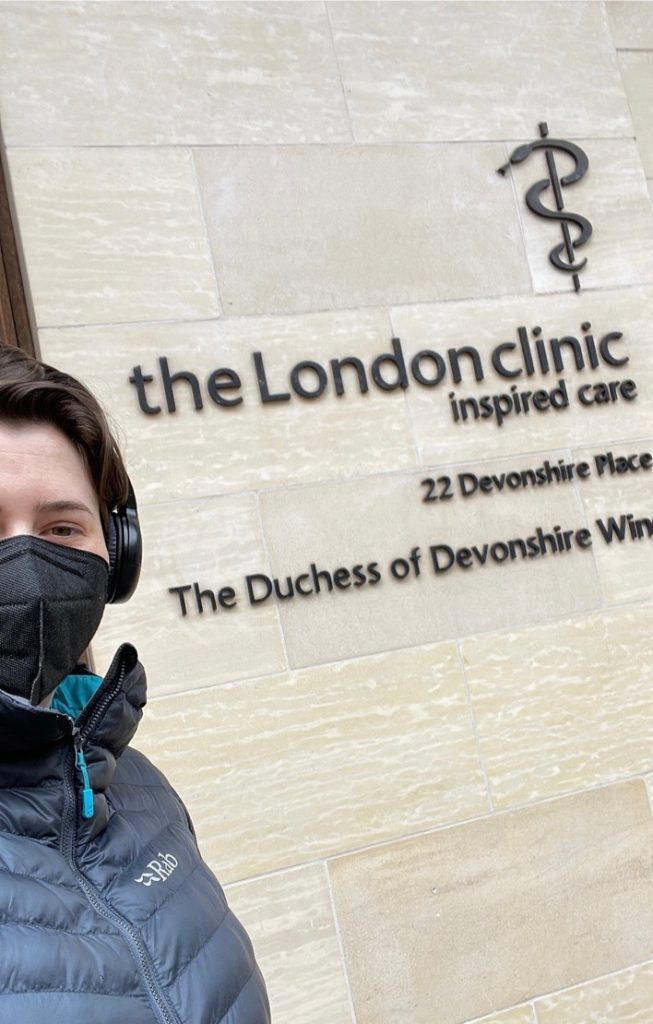
One afternoon in early April, I received a call from the donor team, explaining that they were interested in my HLA type for research – HLA is a type of molecule found on the surface of most cells in the body that helps your immune system. As they had my information on their database from that 2016 swab, the research team were able to identify that I was eligible to contribute to an Oxford University study looking at both the discovery and T-cell targeting of antigens that would be considered non-self and expressed in sarcoma.
I spoke to the donor team on the phone for around 30 minutes, where they explained that if I was happy to donate lymphocytes I would be invited for a medical assessment. If that was clear, I would donate by running my blood through a centrifuge which would extract the lymphocytes. I was more than happy to do so, as I have given blood before and was more than happy to undergo a similar process in order to contribute to potentially life-saving research.
I travelled to London in April for my medical, where I met the medical team at The London Clinic and had bloods taken, along with an ECG, my blood pressure and physical examination. The results of my tests were all clear, so I was invited back in May to donate. This process could not have been more straightforward.
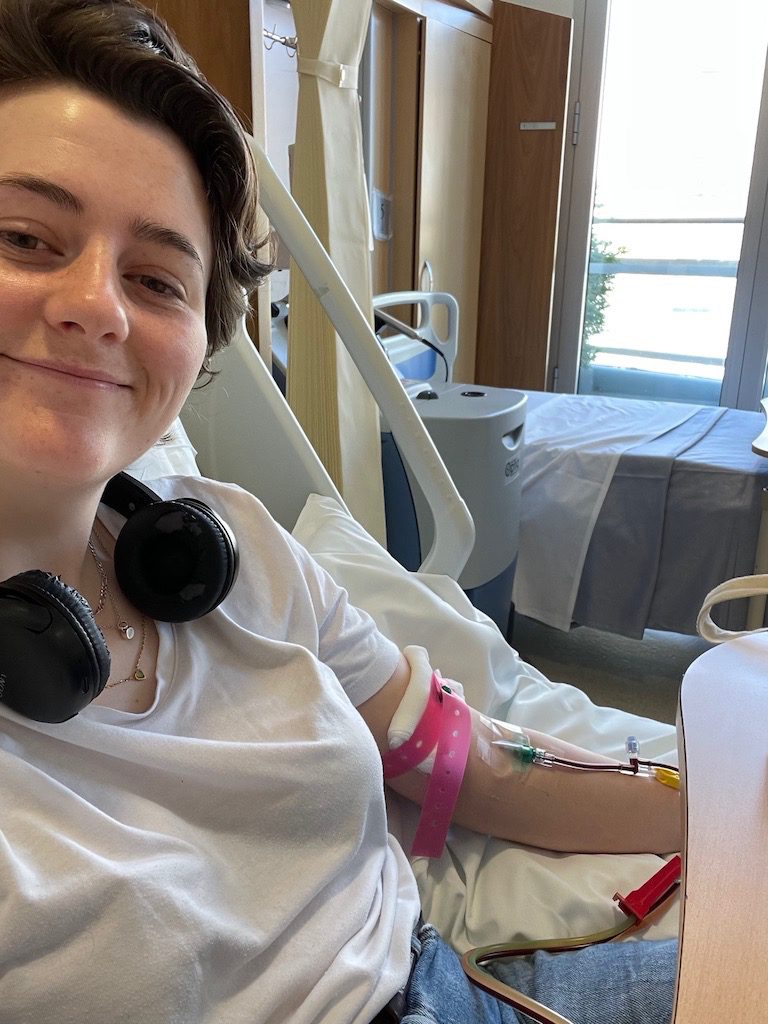
I arrived at the Clinic at 8:30, met the nursing team and was very well looked after. I was in a quiet ward with one other individual donating for Anthony Nolan, and I was able to fully move one of my arms the whole time so I was very comfortable. The whole process took around 5 hours from start to finish. The team had explained that the anti-coagulant solution they use in the centrifuge may bind with the calcium in my blood, meaning that it didn’t come back into my body and so the only real “hiccup” was that (as expected) this happened and I was given some supplementary calcium.
Once I finished, I was given lunch at the hospital and travelled back to Scotland.
Why is this important? Blood Cancers
As you know, our blood is made up of different cell types including red blood cells for carrying oxygen, platelets to help blood clot and white blood cells that fight infections.
They all originally come from stem cells, which have the potential to develop into any type of blood cell as they divide and mature. Problems in this process, known as ‘differentiation’, are at the root of all blood cancers. Different types of blood cancer depend on when and how these problems occur.
These problems often lead to your body producing large numbers of immature blood cells that can’t perform their job properly. They can also ‘clog up’ your bone marrow, which prevents other types of blood cells from doing their job too.
Blood cancers are categorised into three groups – leukaemia, lymphoma, and myeloma.
- About 2,300 people in the UK need a stem cell transplant from a stranger every year
- Blood cancer is the fifth most common type of cancer in the UK and the third biggest cancer killer. It accounts for 9% of all new cases of cancer diagnosed in the UK.
Depending on the type of blood cancer, there are different treatment pathways. Each of these comes with its own side effects, which are taught as part of our Level 4 CanRehab Specialist Instructor course. In order to learn more about these cancers, as well as how you can safely work with people with cancer, visit our website or email CanRehab for more information at info@canrehab.co.uk
If you’re interested in learning more about Anthony Nolan and their work, or the study that Phoebe contributed to please visit their website or get in touch with us at admin@canrehab.co.uk
In this blog we’ll give you updates about what we’ve shared over the last few months – from a guest podcast on Menopause and Cancer to our first CanRehab Webinar (attended by over 500 people), it has been a busy time at CanRehab HQ.
Make sure to follow us on Facebook, Instagram, or Twitter to stay up to date with all of these updates and more. We regularly post job opportunities, podcasts and articles.
Podcast
Can exercise reduce our risks of cancer recurrence? And if so, by how much? Do we have clear evidence showing so or are these assumptions? And how the heck do I even make a start if my whole body is hurting, my joints are so stiff and I feel so fatigued?
A few weeks ago, Professor Anna Campbell and Sarah Newman (@getmebackuk) joined @healthywholeme on the The Menopause and Cancer Podcast to answer all these questions and more.
You can listen to the podcast episode for free through the links below –
Dani said “I feel this is a really exciting episode, as it shows that there is so much we can do every single day to not just help us feel better, but also improve our chances of survival and long-term health.“
Thank you for having us to talk about such an important topic, Dani!
Webinar
October saw CanRehab launch our new webinar series, kicking off with a discussion between Professor Kristin Campbell and Professor Anna Campbell. Kristin is a licensed physical therapist and a Professor in the Department of Physical Therapy at the The University of British Columbia, Vancouver, Canada. She also an Affiliated Scientist in the Cancer Control Program at the BC Cancer Research Institute, so we were really pleased to have her on to talk with Professor Campbell.
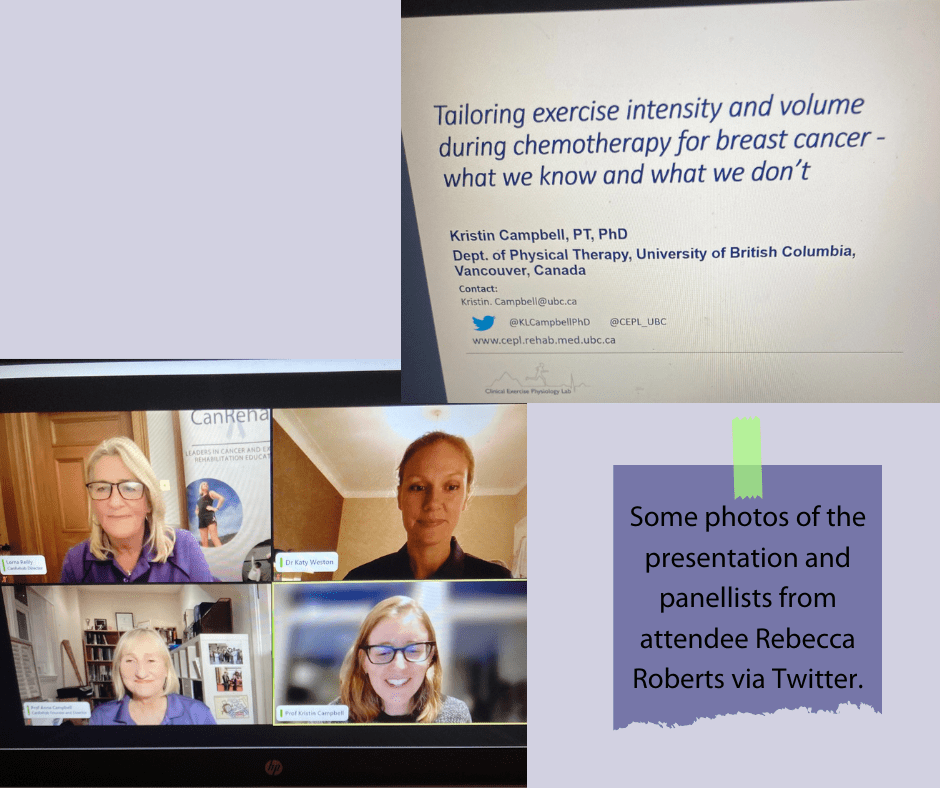
The webinar focussed on “Tailoring exercise intensity and volume during chemotherapy for breast cancer – what we know and what we don’t!“, and we were thrilled to have so many people join us, and hear the positive feedback after the event.
“This was so valuable. Thank you so much for all of the efforts and expertise shared through this webinar!“
“Really useful, many thanks. I look forward to more.”
If you would like to access the webinar, you can do so for free up until the end of this year, by registering here:
Tailoring Exercise During Treatment
We will be hosting more webinars in the future. Stay up to date with our social media and blogs to hear more on this soon.
Utrecht – Horizon Project | Multi-national European Research Project
In early November, Professor Campbell attended the first Horizon Grant PREFERABLE meeting in Utrecht. Horizon Europe is the EU’s key funding programme for research and innovation with a budget of €95.5 billion. The programme facilitates collaboration and strengthens the impact of research and innovation in developing, supporting and implementing EU policies while tackling global challenges.
As part of the Horizon Europe grant, Anne May, a Professor in Clinical Epidemiology of cancer survivorship at UMC Utrecht, and her colleagues have received a €6 million grant to develop and evaluate a personalised and live-remote exercise program for cancer patients. With this new intervention, they aim to resolve current problems in the implementation of exercise programs. More detailed information on this can be found below:
New personalised and live-remote exercise program
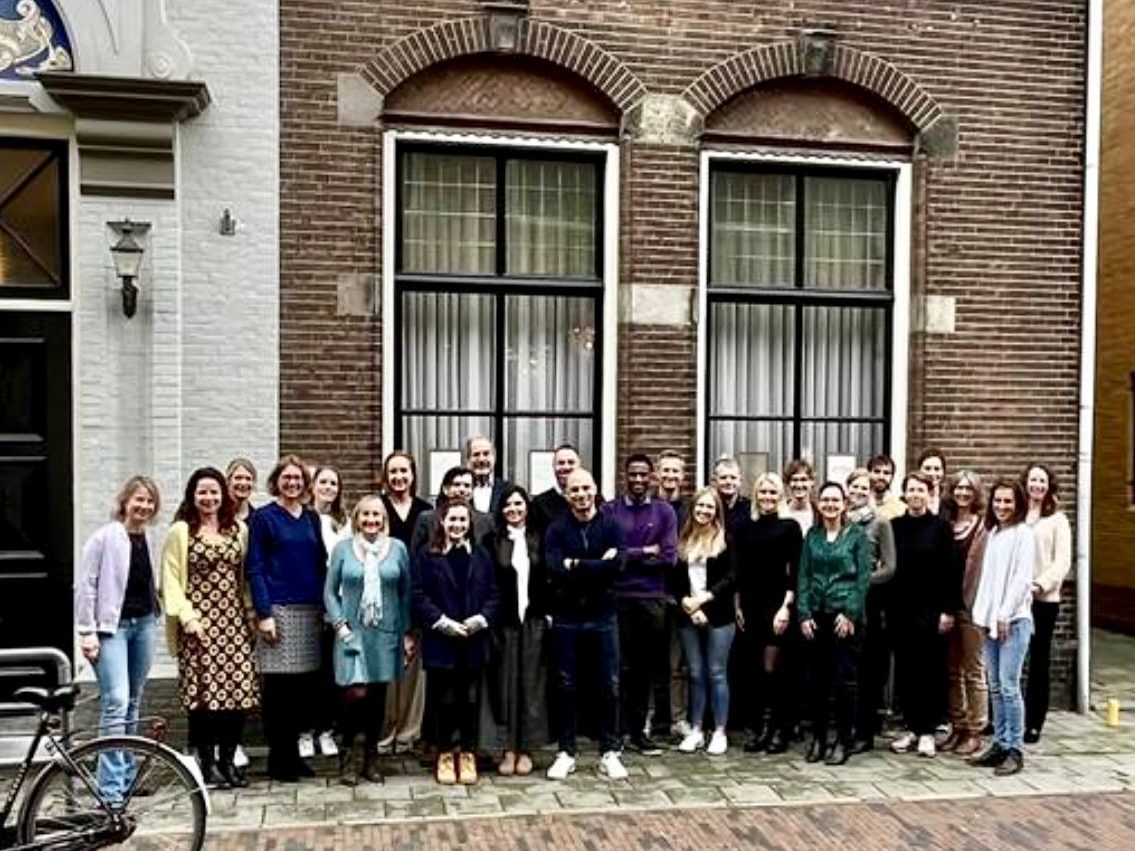
The PREFERABLE-II consortium, as the project is dubbed, aims to tackle these hurdles. PREFERABLE-II stands for: Personalised Exercise-Oncology for improvement of supportive care: a super umbrella trial to demonstrate the (cost)effectiveness of live-remote exercise in cancer survivors.
With colleagues from the Netherlands Cancer Institute and from renowned research institutes in Germany, Sweden, Spain, Portugal, and Australia, Anne May will develop a novel exercise intervention that is live-remote and personalised to the wishes and needs of the patient. The European Cancer Patient Coalition will provide patient input in the scientific studies and for dissemination of the results. Julius Clinical Research BV will be monitoring the trial.
Personalised exercise program based on the survivor’s side effects
Existing exercise interventions are designed in a one-size fits all fashion and leave only limited room for personalisation. “We’re going to design an exercise program that improves overall quality of life and one out of four major long-term side effects: fatigue, low physical fitness, neuropathy or psychological symptoms”, Anne explains. “Hence, we can personalise the program to the survivor’s main side effect. All participants will receive a base exercise module (2 weeks) supplemented with a specific module (1 week). For example, people suffering from neuropathy will receive more balancing exercises, while for those enduring chronic fatigue a yoga session will be added.”
Live-remote training program
Another more practical problem with existing exercise interventions is that they are most effective when offered on-site at a training facility, under the supervision of an exercise specialist. Unsupervised home-based programs are less effective, most likely because the required training intensities are not reached. The need to travel to a training facility creates hurdles for patients and survivors that lower participation, like time constraints due to job or care tasks, too much travel time or travel dependencies.
Anne said “this is why our exercise intervention will be implemented at the homes of patients and survivors. It works with live-remote supervision from a national broadcast centre ensuring direct supervision via video connection of specialised exercise trainers and appropriate training intensities. For this we have built on recent experiences and insights gleaned during the COVID-19 pandemic and supported by tele-communication systems.”
Available to all cancer survivors
Most research thus far is aimed on a specific group of cancer patients, mainly patients with breast cancer. “Our exercise intervention can and will be made available to all cancer survivors”, says Anne. As such, our project contributes to improving the quality of life of those affected by cancer, by lowering the burden of side effects, while also improving availability, access, and awareness off exercise-based supportive care interventions.”
In addition to evaluating the intervention, PREFERABLE-II will also work on standards for patient-centred communication including shared decision-making regarding exercise, and on practical, professional, and legal recommendations for offering live-remote exercise for patients with cancer in Europe.

